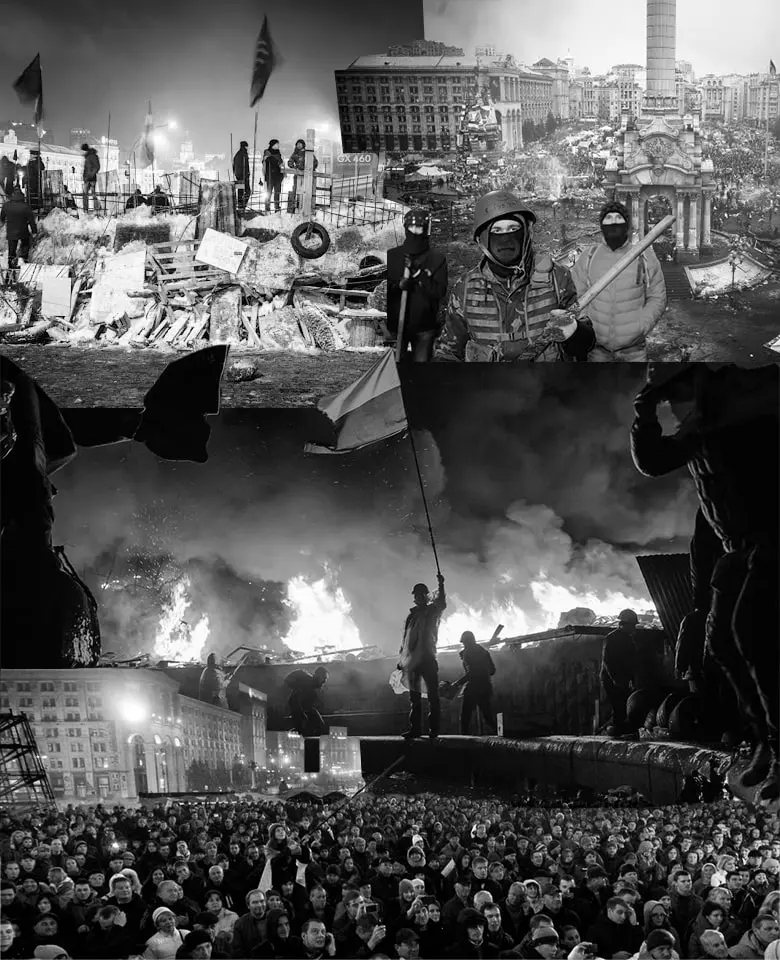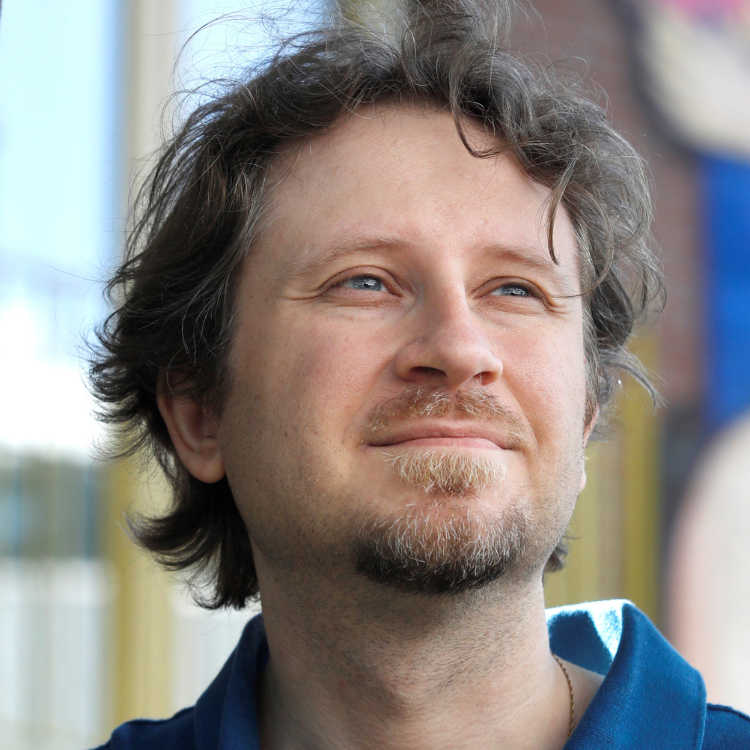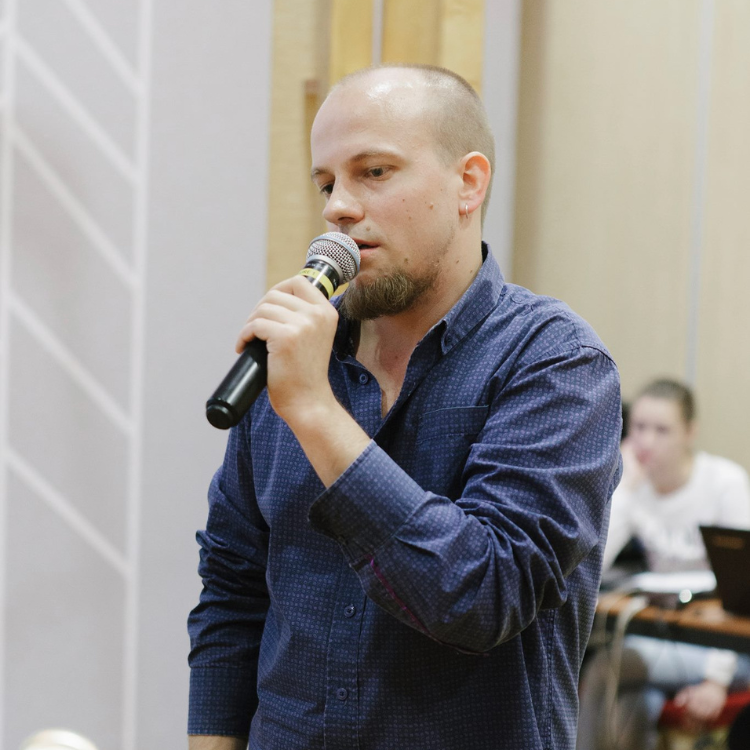RESEARCH PROJECT
Maidan Revolutions, the War in Ukraine, and Civil Society Responses
Volodymyr Ishchenko and Oleg Zhuravlev

The research project “Maidan Revolutions, the War in Ukraine, and Civil Society Responses” seeks to deepen our understanding of contemporary revolutions within the context of an ongoing crisis of hegemony, whilst also contributing to discussions about effective counter-hegemonic strategies.
Traditionally, revolutions have played a pivotal role in shaping (counter)hegemonic politics. However, in the present landscape, we observe a crisis of hegemony wherein modern revolutions often fail to precipitate substantial social change or establish more inclusive governance structures.
Our inquiry delves into the intricate social and political dynamics following contemporary revolutions, which may perpetuate or exacerbate the existing crisis of hegemony. Moreover, we aim to identify the various civic and political actors who are emboldened by these revolutions.
Specifically, the project scrutinises the class, political, and ideological imbalances within post-Soviet civil societies, particularly amidst recent revolutions and ongoing conflicts —a manifestation of the escalating crisis of hegemony in its most visceral form.
LATEST UPDATES
book proposal
The War that Changed the World
The ongoing Russia-Ukraine war, now entering a crucial turning point, demands a deep, interdisciplinary exploration of its long-term impacts and the global trends it has intensified or set in motion. Whether or not Donald Trump’s presidency leads to a stable ceasefire, the war’s first phase appears to be nearing its conclusion. This moment invites us to reflect on the consequences not just for Ukraine and Russia but for regions far beyond Eastern Europe, with implications reverberating through the entire world system. It is no exaggeration to claim that a different World is emerging out of the tragedy of the War in Ukraine. This proposed collection of essays brings together leading international critical thinkers and scholars with expertise in politics, society, international relations, and economics in relation to Ukraine, Russia, the Western countries and the Global South. Together, they examine how this conflict has shaped and will continue to shape global dynamics for decades to come. By addressing these profound shifts, the volume offers not just an analysis of the war itself, but a roadmap for understanding the emerging new geopolitical and socio-economic orders in its wake. At its core, this book explores the enduring consequences of the war and the trends it has unleashed. These trends—whether economic, social, political, or environmental—are likely to define the future in ways that are at once unpredictable, unsettling, and, in some cases, transformative. The contributors in this volume will analyse these developments through diverse disciplinary lenses, offering insights that are as essential for activists, policymakers and academics as they are for readers seeking to understand the contours of a world fundamentally reshaped by war. By grappling with questions about the future—however uncertain or uncomfortable it may be—this book aims to foster critical dialogue on the most pressing issues of our time.
article
The Politics of Normality in Wartime Russia and Ukraine
The project’s final article uses surveys and interviews from Ukraine and Russia to track evolving war attitudes and civic changes. It introduces “soft patriotism”—a rising national pride that stops short of backing Russia’s war or intensely criticizing Ukraine’s state. This sentiment stems from a wish for “normality” after post–Soviet economic and political upheavals. In Russia, economic gains and volunteer efforts underwrite soft patriotism as a coping response to wartime trauma. Whether this can persist post‐conflict is unclear—and may explain Putin’s reluctance to pursue peace. In Ukraine, a more assertive “autonomous” patriotism also masks state‐legitimacy doubts and postwar anxieties.
article
Why is Ukraine struggling to mobilise its citizens to fight?
The second article by Volodymyr Ishchenko and Peter Korotaev uses on-the-ground fieldwork in Ukraine to show that widespread skepticism toward the state—stemming from its failure to deliver basic services—reflects a broken social contract. Rather than rallying around a shared future vision, Ukrainians are united mainly by resistance to Russian occupation. The authors call for robust support systems to relieve war fatigue and balance urgent humanitarian aid with long-term recovery, while also tackling the social and economic inequalities that hinder mobilisation.
EVENT
- 26 June 2025
- Berlin
The lead researchers will hold an event scheduled on June 26 at the Aquarium space in Berlin, with a focus on what the preliminary findings of the project can illustrate in the emerging socio-political orders following the Russia-Ukraine war. The Jacobin Germany will co-sponsor the event and help with media promotion and circulation of the recording. The project leaders will be joined on the panel by Dr. Wolfgang Streeck, Dr. Anton Jäger, and Victoria Myznikova.
WORKSHOP
- 19 March 2024
- 3:30pm (GMT)
- Online Event
Volodymyr Ishchenko and Oleg Zhuravlev promote a workshop for the humanitarian sector presenting an update of the political conflicts around the war in Ukraine.
READING GROUP
- 2024
- Monthly
- Network researchers
The fellows organise a regular reading group to complement the project ‘Maidan Revolutions, Civil Society, and Hegemony Crisis in Post-Soviet Countries.’ The reading group is aimed at researchers from the Alameda Institute network.
FELLOW TALKS
- 24 October 2023
- 8:30pm (GMT)
- Online Event
Volodymyr Ishchenko and Oleg Zhuravlev introduce their current research project, which aims to contribute to the theory of contemporary revolutions, taking place under the conditions of the ongoing crisis of hegemony, and to debates on the reconstruction of counter-hegemonic strategy.
researchers

Volodymyr Ishchenko
Dr. Volodymyr Ishchenko is a research associate at the Institute for East European Studies, Freie Universität Berlin. His research focuses on protests and social movements, revolutions, radicalization, right and left politics, nationalism, and civil society. He published widely on contemporary Ukrainian politics, the Euromaidan revolution, and the ensuing war. He has been a prominent contributor to The Guardian, Al Jazeera, New Left Review, and Jacobin. He is the author of "Towards the Abyss: Ukraine from Maidan to War" (Verso, 2024).

Oleg Zhuravlev
Oleg Zhuravlev is a sociologist. He is a research fellow at Scuola Normale Superiore (Italy) and researcher with the Public Sociology Laboratory (Russia). He received his PhD in Social Sciences from the European University Institute (Florence, Italy). His research is focused on social movements, the sociology of knowledge, Marxism, pragmatic sociology. His academic articles have been published in Post-Soviet Affairs, the International Journal of Politics, Culture, and Society, Studies in East European Thought, Laboratorium, and others.
